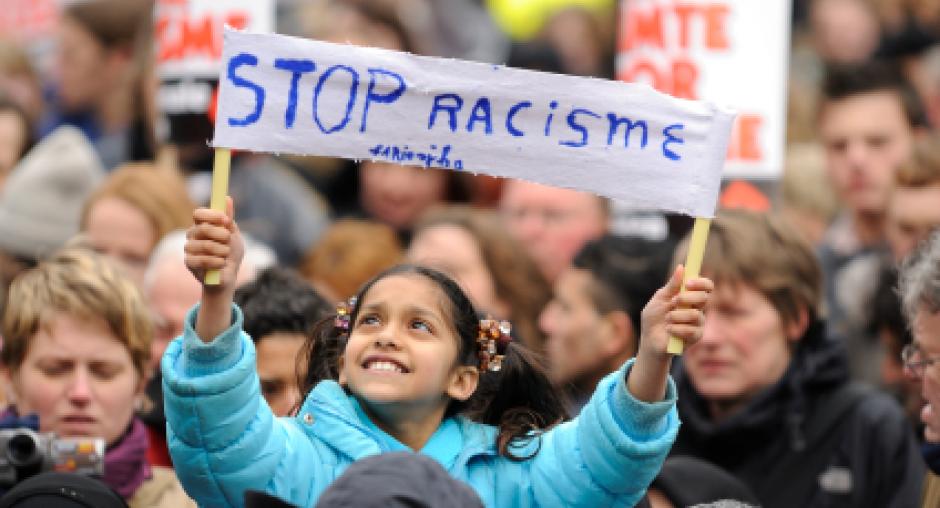Joint Statement on International Day for Elimination of Racial Discrimination

VIENNA, WARSAW, STRASBOURG, 21 March 2013 – The social fallout from the ongoing global economic crisis must not become an excuse to allow racism and prejudice to go unchecked, said Morten Kjaerum, Director of the European Union Agency for Fundamental Rights (FRA), Ambassador Janez Lenarčič, Director of the OSCE Office for Democratic Institutions and Human Rights (ODIHR), and Eva Smith Asmussen, Chair of the Council of Europe's European Commission against Racism and Intolerance (ECRI), in a joint statement to mark the International Day for the Elimination of Racial Discrimination.
Racism and discrimination have continued and in some places even increased, despite numerous national laws and international treaties prohibiting them. These include the International Convention on the Elimination of all forms of Racial Discrimination, the European Convention on Human Rights, the Charter of Fundamental Rights of the European Union, and the EU’s Framework Decision on Racism and Xenophobia, as well as a large body of commitments made by OSCE participating states.
“It is a sad truth that violence, discrimination and hate crimes directed against ethnic minorities and migrants remain a daily reality throughout the European Union,” said Morten Kjaerum of FRA. “But these people bring a diversity to our societies that we know to be a driver not only for social change, but also for economic growth. This is an abundance of untapped potential that we would be ill-advised to ignore.”
The skills and talents of members of minorities in our societies – whether they are citizens of the countries in which they live or more recent migrants – need to be acknowledged, and furthermore to be better utilised. A proactive approach that appreciates diversity while furthering integration would help to reduce racial discrimination and increase security, as well as helping to boost growth.
“Periods of severe economic downturn can result in greater social exclusion, which often leads to a search for scapegoats – and it is then minorities who are often the first to suffer,” said Janez Lenarčič of ODIHR. “In addressing these problems, ODIHR has recently enhanced its police-training programmes and continues to highlight incidents and responses to them in its annual report on hate crimes.”
In the countries most affected by the consequences of the economic crisis, there has been an increase in the appeal of extremist parties that are rooted in a profound hostility to ethnic, religious and cultural diversity. Their aggressive rhetoric often fuels intolerance towards minorities by insinuating they are a danger to national identity or even national security, which can lead to a proliferation of hate crimes and racist attacks.
“In Europe, support for xenophobic parties has increased in recent elections, and they have gained seats in the government coalitions and parliaments of several countries,” said Eva Smith Asmussen of ECRI. “Governments often claim that there is no racism in their countries, but this is unfortunately often not the case. It is high time they opened their eyes and assumed responsibility for countering the intolerance manifested in bias such as anti-Gypsyism, antisemitism or Islamophobia.”
The heads of all three organizations called for greater efforts to combat racism and discrimination, and for more co-ordination among international governmental organizations to provide support to policy makers at a time when resources are limited and the challenges so significant. They also stressed the need for decision makers and civil society organizations to develop initiatives at the local level, as practitioners here are best placed to identify and meet the needs of migrant and minority populations.
The United Nations designated 21 March the International Day for the Elimination of Racial Discrimination in 1966, in memory of the 69 people killed six years earlier in Sharpeville, South Africa, during a peaceful demonstration to protest the apartheid system.
